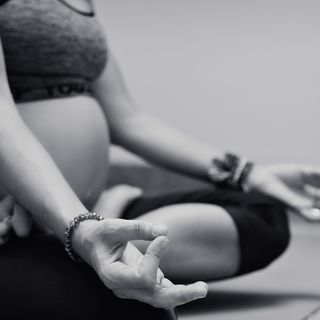
Do You Really Need Sunscreen? Yes.
A now-viral article is trying to convince you it’s not.

A few weeks ago, an article published in a niche online magazine questioning the importance of sunscreen — arguing that sunscreen is, in fact, keeping everyone from getting the proper amount of vitamin D needed for a healthy life. It has since made the rounds on social media, garnering a receptive audience for its message of industry-leading-consumers-astray, likening the dermatological mandate to wear sunscreen to nutritionists’ recommendations to avoid cholesterol-rich foods — only for it to come out decades later that sugar was the real culprit all along.
The article cites research finding low vitamin D levels are linked to diseases and conditions as diverse as cancer, diabetes, cardiovascular disease, autoimmune conditions and more. It also cites research that found vitamin D supplementation has “little or no benefit beyond the low levels required for bone health” — to reach the conclusion that the best, most integral source of vitamin D is the sun, and sunscreen is keeping us from getting it, contributing to a rise in virtually all conditions listed above.
This is … questionable at best. While the sun is, of course, the best source of vitamin D, the conclusion is a reach. The “little or no benefit” finding simply suggests vitamin D supplements are not a wonder-cure for complicated diseases and conditions. Indeed, most of the research cited throughout the article fails to account for the fact that healthier people are more likely to spend time in the sun than unhealthy people, and thus more likely to have strong levels of vitamin D — making the vitamin an indicator of good health, as much as a contributor to it.
That said, it’s an interesting question of trade-offs; there’s no denying vitamin D — especially the vitamin D produced in our bodies upon exposure to UV rays from the sun — is essential to good health. But too much exposure to those same rays can also cause skin cancer. At what point does vitamin D loss in the name of skin protection begin? We spoke with Bangalore-based dermatologists Dr Mukta Sachdev and Dr Ayushi K to find out whether you really need sunscreen.
On the importance of vitamin D…
“Vitamin D deficiency has a bearing not only on skeletal but also on extraskeletal diseases. Owing to its multifarious implications on health, the epidemic of vitamin D deficiency in India is likely to significantly contribute to the enormous burden on the healthcare system of India,” the doctors say. “Cultural and social taboos often dictate lifestyle patterns such as clothing that may limit sun exposure, and vegetarianism, which certainly limits vitamin D-rich dietary options.”
On whether using sunscreen prevents us from making enough vitamin D…
“SPF sunscreens are designed to filter out most of the sun’s UVB radiation, since UVB damage is the major cause of sunburn and can lead to skin cancers. UVB wavelengths happen to be the specific wavelengths that trigger vitamin D production in the skin. Nonetheless, clinical studies have never found that everyday sunscreen use leads to vitamin D insufficiency,” the doctors say.
“In fact, the prevailing studies show that people who use sunscreen daily can maintain their vitamin D level. One of the explanations for this may be that no matter how much sunscreen you use or how high the SPF, some of the sun’s UV rays reach your skin,” they add. “An SPF 15 sunscreen filters out 93% of UVB rays, SPF 30 keeps out 97%, and SPF 50 filters out 98%. This leaves anywhere from 2% to 7% of solar UVB reaching your skin, even with high-SPF sunscreens. And that’s if you use them perfectly.” (Which most people do not.)
Related on The Swaddle:
Next Gen Sunscreen May Mean a Second Skin
On how much sun we need to produce vitamin D…
“The truth is, it doesn’t take much sun exposure for the body to produce vitamin D. Even committed proponents of unprotected sun exposure recommend no more than 10 to 15 minutes of exposure to arms, legs, abdomen and back, two to three times a week, followed by good sun protection. That minor amount of exposure produces all the vitamin D your body can muster. After that, your body automatically starts to dispose of vitamin D to avoid an overload of the vitamin, at which point your sun exposure is giving you nothing but sun damage without any of the presumed benefit,” the doctors say.
“The thing is, even just those unprotected 10 or 15 minutes are way more than enough time to cause DNA damage, and every bit of this damage adds up throughout your lifetime, producing more and more genetic mutations that keep increasing your lifetime risk of skin cancer,” they say. “Unfortunately, the very same UVB wavelengths (290-320 nanometers, or nm) that make the body synthesize vitamin D are also the wavelengths that produce sunburn and genetic mutations that can lead to skin cancer.”
—
Bottom line? Using sunscreen doesn’t keep you from getting the UV exposure you need to make enough vitamin D; it does keep you from getting skin cancer. Now, there may be other reasons to avoid sunscreen, but going without skin protection of any kind in the sun for more than a handful of minutes at a time is, as Drs. Sachdev and K point out: “way more than enough time to cause DNA damage.”
Liesl Goecker is The Swaddle's managing editor.
Related


Climate Change Is Driving Childhood Obesity, Undernourishment by Making Healthy Food Less Accessible
